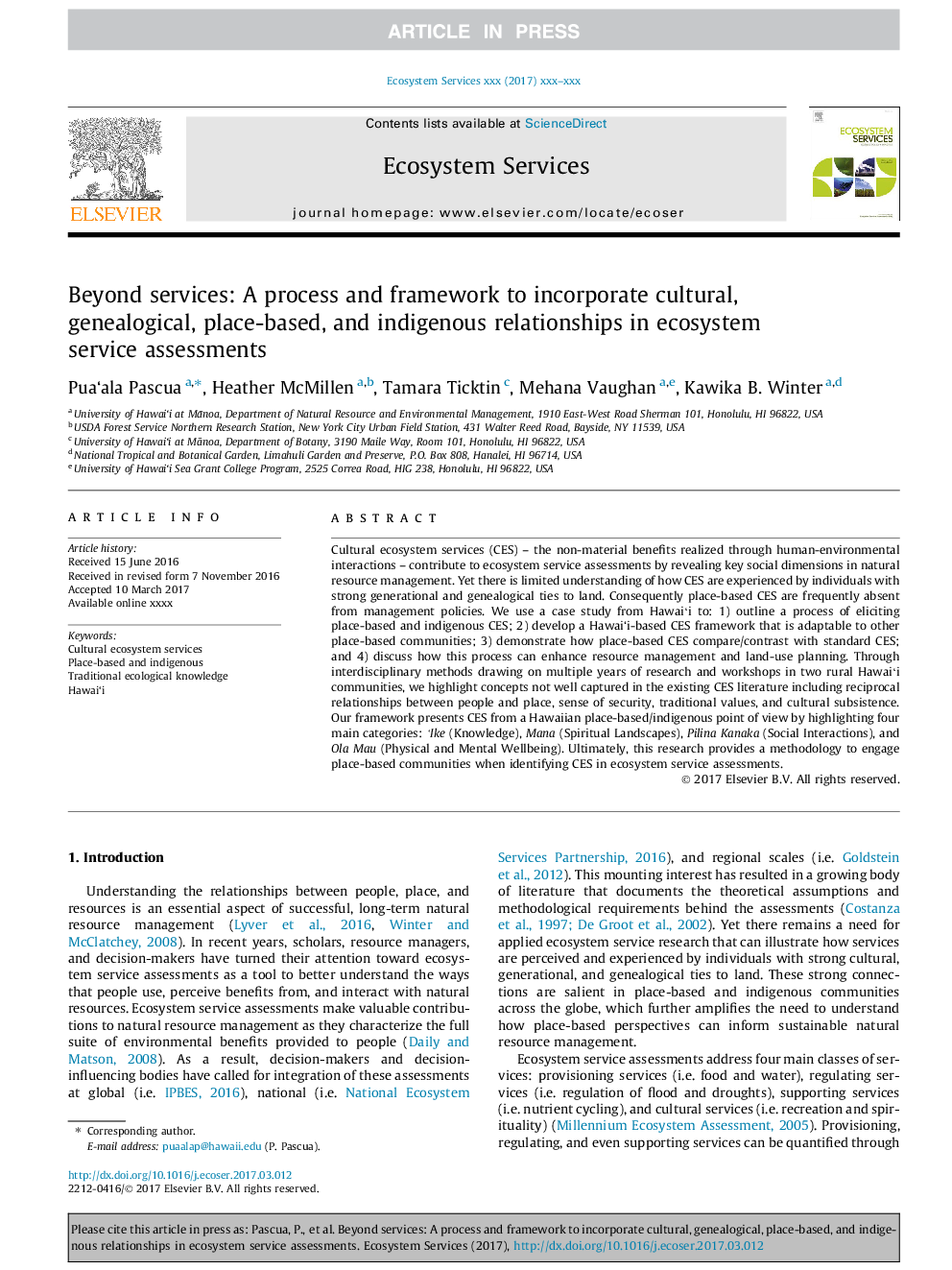ترجمه فارسی عنوان مقاله
فراتر از خدمات: یک فرایند و چارچوب برای ترکیب روابط فرهنگی، شجره نامه، محل و بومی در ارزیابی خدمات اکوسیستم
عنوان انگلیسی
Beyond services: A process and framework to incorporate cultural, genealogical, place-based, and indigenous relationships in ecosystem service assessments
| کد مقاله | سال انتشار | تعداد صفحات مقاله انگلیسی |
|---|---|---|
| 87399 | 2017 | 11 صفحه PDF |
منبع

Publisher : Elsevier - Science Direct (الزویر - ساینس دایرکت)
Journal : Ecosystem Services, Volume 26, Part B, August 2017, Pages 465-475
ترجمه کلمات کلیدی
خدمات اکوسیستم فرهنگی، محل و مبتنی بر بومی، دانش زیستشناسی سنتی، هاوایی من،
کلمات کلیدی انگلیسی
Cultural ecosystem services; Place-based and indigenous; Traditional ecological knowledge; Hawaiâi;

